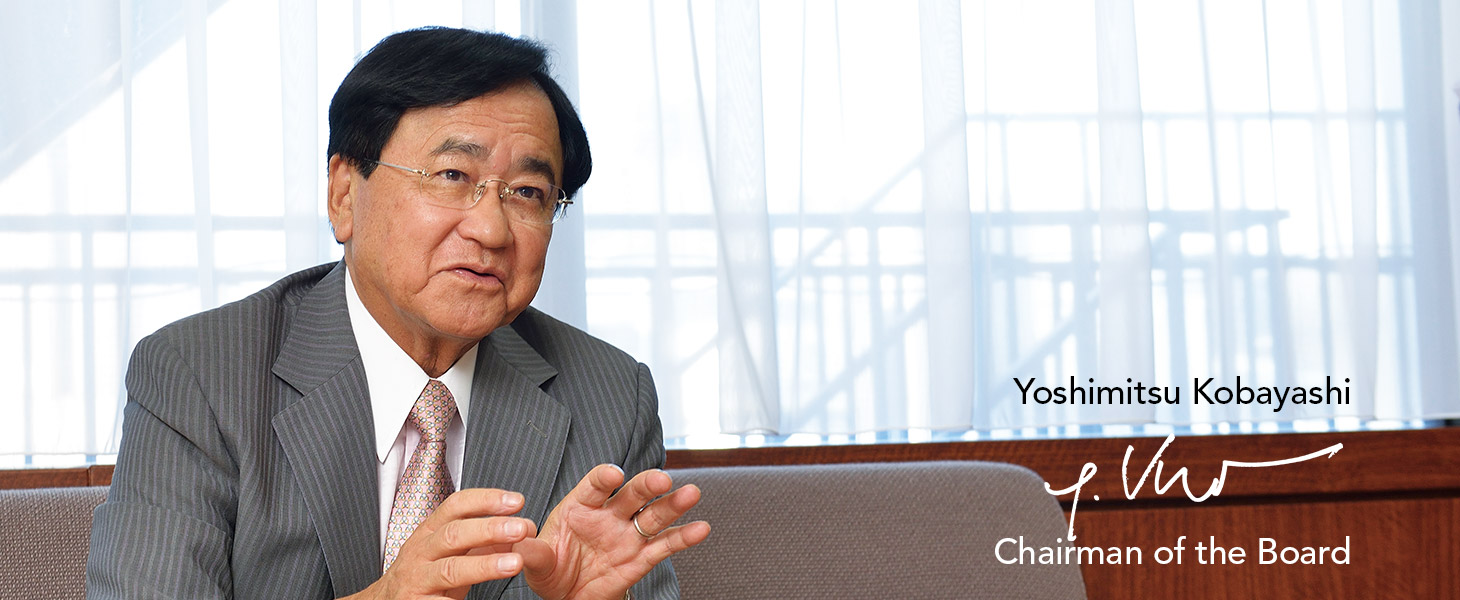Message from the Chairman
Providing Highly Effective Supervision in order to Create a Carbon Neutral Society

Balancing our Responsibilities with Improvements to Corporate Value
At the 97th general shareholders’ meeting on June 29, 2021, 13 board members worthy of leading management reforms and balancing the fulfillment of the TEPCO Group’s responsibilities to Fukushima with the improvement of corporate value were selected. The Board is comprised of members with diverse backgrounds in terms of gender, expertise and experience, and the number of female outside directors has been increased from one to two. After Board Chairman Utsuda steps down, I have been appointed as Chairman of the Board, and the Board of Directors, with its three new members including myself, shall begin anew.
My involvement with the TEPCO Group spans a period of 10 years. For approximately three years from 2012 until 2015, I served as an outside director of management reforms implemented by the TEPCO Group in the wake of the Great East Japan Earthquake and Tsunami. At the time, the most pressing issue was creating infrastructure that will enable us to fulfill our responsibilities to Fukushima, and we had just begun full-scale management reforms aimed at “earning” and improving corporate value in order to fulfill those responsibilities. After stepping down as an outside director in 2015, I have remained involved with the TEPCO Group as a member of the Committee for Reforming TEPCO and Overcoming 1F Challenges (TEPCO Committee) and a member of the Nuclear Damage Compensation and Decommissioning Facilitation Corporation’s Management Committee. Having had a front row seat to the changes that the TEPCO Group has experienced, I believe that making the transition to “Company with Nominating Committee, etc.” in 2012 and becoming a holding company system in 2016 has enabled governance within TEPCO to function effectively. This governance has permeated throughout the entire Group and I believe that the vectors of all management, including the presidents of core companies, are aligned. Detailed examples of the steady corporate culture reforms that have been implemented at TEPCO include the streamlining of work processes through KAIZEN activities, the permeation of work methods that consider the reinforcement of existing projects and “profitability,” and the expansion of spheres of business. At the same time, I find it quite regrettable that incidents that result in a loss of trust by society and customers continue to occur, such as the string of improprieties pertaining to nuclear power and the order to suspend telemarketing activities.
In light of these circumstances, under my watch our first responsibility will be to regain the trust of society and our customers by implementing corporate culture reforms, which continues to be an issue that needs to be addressed. I believe that the mission of this new Board of Directors is to support bold executive decisions that will enable continual growth of the TEPCO Group by increasing independence and objectivity, and providing highly effective supervision, and as Chairman I shall lead the Board in this manner.
New Creations in the Energy Business
The Covid-19 pandemic, for which an end is yet in sight, has changed social structures on a global level and concern over global problems, and carbon neutrality in particular, is quickly growing. As more attention is focused on initiatives to address these issues, the business environment of the TEPCO Group is changing more than ever. It would be extremely difficult to generate the approximate ¥450 billion of annual profits that the 4th Comprehensive Special Business Plan announced in July 2021 aims to achieve by continuing our conventional electricity business. The TEPCO Group must of course fulfill its responsibilities to Fukushima, such as compensation/recovery and decommissioning, etc., but I believe it is also responsible for leading the energy industry in order to solve social issues in Japan and throughout the world. I personally feel a sense of crisis in regards to climate change, and believe that we must quickly implement concrete measures for the sake of the future. This comes from my experience as a manager of Mitsubishi Chemical Holdings, Inc. during which time I participated in meetings of the world’s corporate leaders, such as the World Economic Forum Annual meeting in Davos, and engaged in many discussions during which a consensus about these issues was formed. Leading companies in the United States and Europe are sincerely addressing the climate-related problems that have been caused in the pursuit of profits, and they have become aware that the value of the company lies with its various stakeholders. For more than a decade, these companies have felt a sense of crisis with the awareness that if they do not seriously address sustainability, or in other words, the continual growth of society, their companies will cease to exist. On the other hand, although Japan has long taken a “good for everyone” approach and has a deep-rooted culture of focusing on the relationship with stakeholders, I feel that this relationship has always taken a back seat to profits and capital efficiency. Currently, Japan is also starting to focus on the profits of the corporation along with the profits of stakeholders, but if a company doesn’t earn it cannot return value to society. Furthermore, in addition to “earning,” global concern over ESG initiatives is growing and capitalism in the future will depend not on trade-offs, but rather on finding an optimum balance between the two.
The current focus on ESG requires that Japan promote initiatives to address climate change more than ever before, and I am convinced that initiatives in the energy sector, which accounts for approximately 40% of Japan’s CO2 emissions, will greatly contribute to creating a carbon neutral society. Going forward, we shall leverage various technical options and watch technical trends both within and outside of Japan that can expand profits and improve corporate value while coming together as a group to further develop initiatives aimed at achieving carbon neutrality. For the TEPCO Group this is an enormous opportunity to reinvent the energy industry, which is the foundation for growth of Japan’s economy, by providing new value to society and our customers in the form of carbon neutrality, and also contribute to creating a global carbon neutral society.
As Chairman of the Board of Directors, I shall lead the TEPCO Group as it puts all efforts into achieving carbon neutrality and generating upwards of ¥450 billion in profits as put forth in the 4th Comprehensive Special Business Plan by balancing our responsibilities to Fukushima with improvement to corporate value through reinventing the energy industry.
Yoshimitsu Kobayashi
Chairman of the Board
















